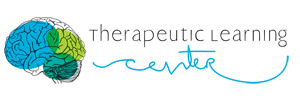Foundational Skills Needed for Efficient and Confident Learning
There are numerous foundational skills needed for learning. If any of these are weak learning will be difficult. Below are listed skills that should be present in order for a child to learn easily:
Auditory Skills
A difficulty in auditory skills can lead to a number of difficulties. Poor reading, difficulty following instructions, or difficulty with comprehension. In extreme cases weaknesses in these areas are considered an Auditory Processing Disorder or Phonetic Dyslexia. These auditory problems are not problems with hearing. They are problems with the way the brain processes sounds. Auditory skills can be strengthened.
Auditory memory – this is the ability to hear information, store it in your mind and be able to recall it later. Without a good auditory memory students may have a hard time remembering words and sounds that they heard.
Auditory Closure – this is the ability to decode a word after only hearing part of the word. If you hear breakf… you should be able to decode the word is breakfast.
Auditory discrimination – this is the brain’s ability to hear a sound and distinguish it from other sounds, organize the sounds and make sense of them. They may have difficulty with background noise, although there is nothing wrong with their hearing.
Visual Skills
A weakness in visual skills can also lead to various learning difficulties. Problems in math, reading, comprehension, spelling, or even writing. If there are extreme weaknesses here these can be the underlying cause of visual dyslexia or attentional dyslexia
Visual tracking – this is the ability to look at something and follow it as it moves. This is needed for a reader to be able to follow a line of print without losing their spot.
Visual memory – this allows us to remember things that we have seen moments before. Playing memory games can help children with this skill.
Visual closure – this allows our brain to close up, or picture a whole image even if it is not all there. For example, if a circle is almost closed, our brain will close it for us, if we see a house with half a window, it will draw one in for us. This will help the reader recognize sight words and read a whole word without having to read every letter.
Visual discrimination – this lets us see differences between two things that are similar. This helps us from being confused when we see “was and saw”, that we can tell the two words apart.
Visual form constancy – this is the ability to mentally turn objects, so they can distinguish difference in shape and size an orientation. This is needed to help children not reverse letters and numbers.
Kinesthetic Skills
The kinesthetic system is an often overlooked part of our learning. However, it is an essential part of learning. Weaknesses in kinesthetic micro-skills such as proprioception are strongly correlated with poor reading. Weaknesses here are a major underlying cause of poor handwriting. The body is intrinsically connected to the mind. Although it is non-intuitive, strengthening this system alone can often lead to advances in reading and other learning skills. Studies have shown improved reading skills simply by learning to coordinate the body better. In other words, reading improved without practicing reading. Incredible! This fact led to the development of the Learning Success System after Liz and Phil Weaver saw drastic improvements in students grades WITHOUT more studying. Just by learning to coordinate their bodies.
Directionality – this is when you incorporate up down, behind and ahead into your learning. If the students do not have directionality they will have difficulty discerning d from b or p and q.
Eye hand coordination – your eyes send split second information to your brain about what it sees; if hand eye coordination is weak, it makes it more difficult to read.
Spatial memory – The ability to navigate a space with the mind. Having a perception of that space and the bodies position in it. Strongly correlated with directionality and proprioception
Proprioception – Our awareness of our body and it’s position in space. Strongly correlated with sequential thinking, logic, and reading skills
Other
Working memory – This is the ability to use your memory to store information and use it at the same time, information comes in you and you process it and store it at the same time. It allows you to plan ahead, solve problems and pay attention.
Although working memory is not considered a micro-skill in itself, it is often referred to as a learning skill, which it is. Truly it is visual memory, auditory memory, and kinesthetic memory combined.

